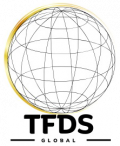Welcome To Our Team
Upgrading Your Team Power!
TFDS Global team building will help your team stay happy, work better together and improve your company culture.
Experience
Various corporate
Certified HRDC
HRDC Qualification
Various Activities
For more goals
More adventures
More motivation
Our goals & objectives of team building

Solid work relations
Team-building activities strengthen workplace relationships, boosting employee morale and productivity.

Encourages communication
Team-building exercises enhance communication, helping teams collaborate, share ideas, and address challenges effectively.

Builds long trust
Trust is essential in any team, reducing second-guessing and enabling smoother collaboration, especially during tight deadlines.

Defines company culture
Company culture defines your organization's unique persona, shaping its values, goals, and operations—best clarified with your entire team present.

Inspiring loyalty
Team-building retreats serve as valuable work perks that boost employee morale, performance, and loyalty, enhancing overall staff satisfaction.

Enhancing problem-solving skills
Encouraging teams to tackle challenges creatively and collaboratively in a supportive environment.
Get Discounts Off On Your First Courses!
Frequently Asked Question!
Team building is the act of teaching individuals to cooperate and function as a unit and is important because the practice develops relationships and builds trust between coworkers. High trust environments inspire confidence and motivate employees to perform at peak levels. Employees who believe in colleagues and identify as valued team members feel compelled to contribute at high levels, and assume other teammates will behave similarly.
The process can decrease conflict and employee absenteeism and boost morale and engagement, which may lead to increased loyalty and less employee turnover. Groups that practice team building are more communicative and collaborative and adept at making collective decisions.
Team building purpose provides context behind an organization’s motivations to implement team building.
